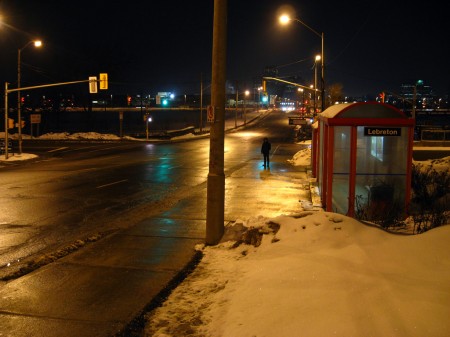
In a recent article about Amazon’s Kindle e-book reader, The Economist declared that:
It seems likely that, eventually, only books that have value as souvenirs, gifts or artefacts will remain bound in paper.
Despite being a big fan of electronic content delivery systems, I wholeheartedly disagree with this assessment. There are considerable advantages to having a personal library of physical books, and there are big disadvantages to taking your books in electronic format.
Physical books possess the many advantages of immediacy. One can display them and quickly glance through the whole collection. One can take notes in them, mark pages, stack them, pass them to others, and so forth. Collections of books are also physical representations of the reading a person has done. I often find that, when I first find myself in someone’s house, flat, or bedroom, their collection of books is the first thing I scrutinize. There is a reason why the personal libraries of intellectuals and political leaders are objects of interest, and I don’t think they would retain the same importance if they consisted of a bunch of PDF or text files.
Electronic books have the same disadvantages as other electronic media: you can’t be confident that they will be intact and accessible decades from now. Furthermore, they are often hobbled with digital rights management (DRM), which means you can never be sure that you can use them on future devices, or in various ways you might wish to. A library stored on a small device may be easier to transport, but it is a lot less trustworthy, durable, and reliable than one that you need to cart around in a heavy collection of boxes.
Electronic books can certainly complement physical ones. It would, for instance, be very valuable to be able to search electronic copies of books you own. A custom search engine, containing all the books in one’s library and that one has borrowed, would be excellent for tracking down particular passages or conducting general research. Partly for these synergistic reasons, and partly for the reasons listed above, I don’t think physical books are ever likely to become rare.
I do see much more promise for electronic periodicals. Hardly anybody wants to keep physical copies of their newspaper or magazine subscriptions on hand: especially when they are available in an easily searchable form online. If I got a Kindle, it would be for the wireless newspaper and Wikipedia access, not for the $10 book downloads.





